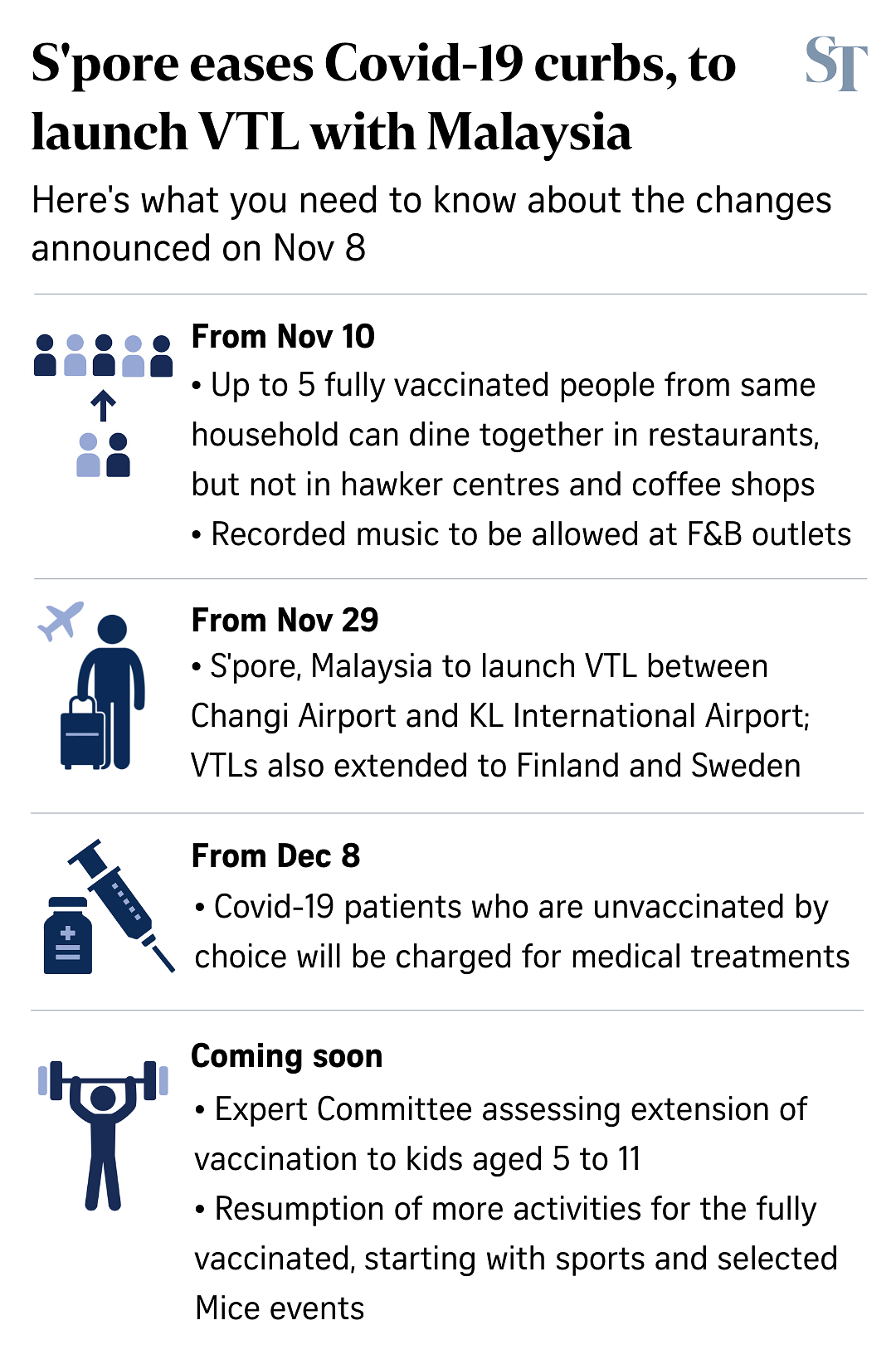Singapore to decide on Covid-19 vaccine for kids aged 5 to 11 in November
SINGAPORE – An expert committee will make a recommendation on whether to extend the Pfizer-BioNTech Covid-19 vaccine to children aged five to 11 in the second half of November, said Health Minister Ong Ye Kung on Monday (Nov 8).
His comments come after the United States Food and Drug Administration (FDA) recently authorised the use of the Pfizer vaccine for children in that age group.
Separately, a fifth case of the multi-system inflammatory syndrome was found among the 8,000 children who were infected with Covid-19.
Speaking at a press conference, Mr Ong noted that the US FDA made its decision after Pfizer conducted a clinical trial and recommended that children in this age group receive one-third of the full adult dosage. They will still get two separate doses.
“The study in the US concluded that vaccination for this group is safe and effective based on this reduced dosage of the adult formulation of the vaccine,” said the minister, who co-chairs the multi-ministry task force tackling Covid-19.
He added that Singapore’s Expert Committee on Covid-19 Vaccination (EC19V) has studied the data and assessed that overall, it is beneficial for children aged five to 11 to get vaccinated, especially given the ongoing community transmission.
The Ministry of Health will also conduct a study with a few hundred children in this age range to understand the suitability of a smaller dosage of the vaccine for children here, Mr Ong said. It will work out how to administer the vaccine smoothly before scaling up the vaccination programme.
“We are pushing ahead with vaccination for children aged five to 11 years as soon as we can once the EC19V has finalised their recommendation and given the go-ahead. And this is so that parents have the added assurance and peace of mind that their children can become protected,” he added.
Once vaccinations are extended to children in this age group, only a small proportion of the population would not be covered by vaccines, he said – those who choose not to be vaccinated and the very young.
MOH will continue to monitor the vaccines suitable for children aged four and under, said Mr Ong, though he noted that the virus tends to affect this group less seriously.
Children who choose not to be vaccinated will also be subject to vaccine-differentiated measures like restrictions on dining in, he added.
Singapore’s director of medical services Kenneth Mak said of the 8,000 children infected so far, two needed intensive care while another two required oxygen support.
He added that inoculating this group of children will increase vaccination rates “well above” the current 86 per cent, which will allow Singapore to open up its economy further.
Associate Prof Mak said Pfizer is producing a formulation designed for children, using the same mRNA ingredient but with a different buffer solution, so that it can be stored under “more conventional cold chain requirements”. This will also make it easier to draw the required amount of vaccine from the vial.
However, as these paediatric vials are not yet commercially available, this will mean having to prioritise existing Pfizer doses for children, said Associate Professor Mak.
He added that MOH will study how to efficiently extract the required doses for children.
Giving an update on children who developed a rare inflammatory syndrome from Covid-19, Senior Minister of State Janil Puthucheary said a fifth case has been reported.
The multi-system inflammatory syndrome causes different body parts, including the heart, lungs, kidney, brain and eyes, to become inflamed following Covid-19 infection.
Two of the cases have already recovered and been discharged, said Dr Janil.
He stressed that the best way to protect against children getting MIS-C is to avoid Covid-19 infection – through good personal hygiene, following safe management measures, and getting them vaccinated once these become available.
Read next – S’pore eases Covid-19 rules from Nov 10: What you need to know
Source: Read Full Article



